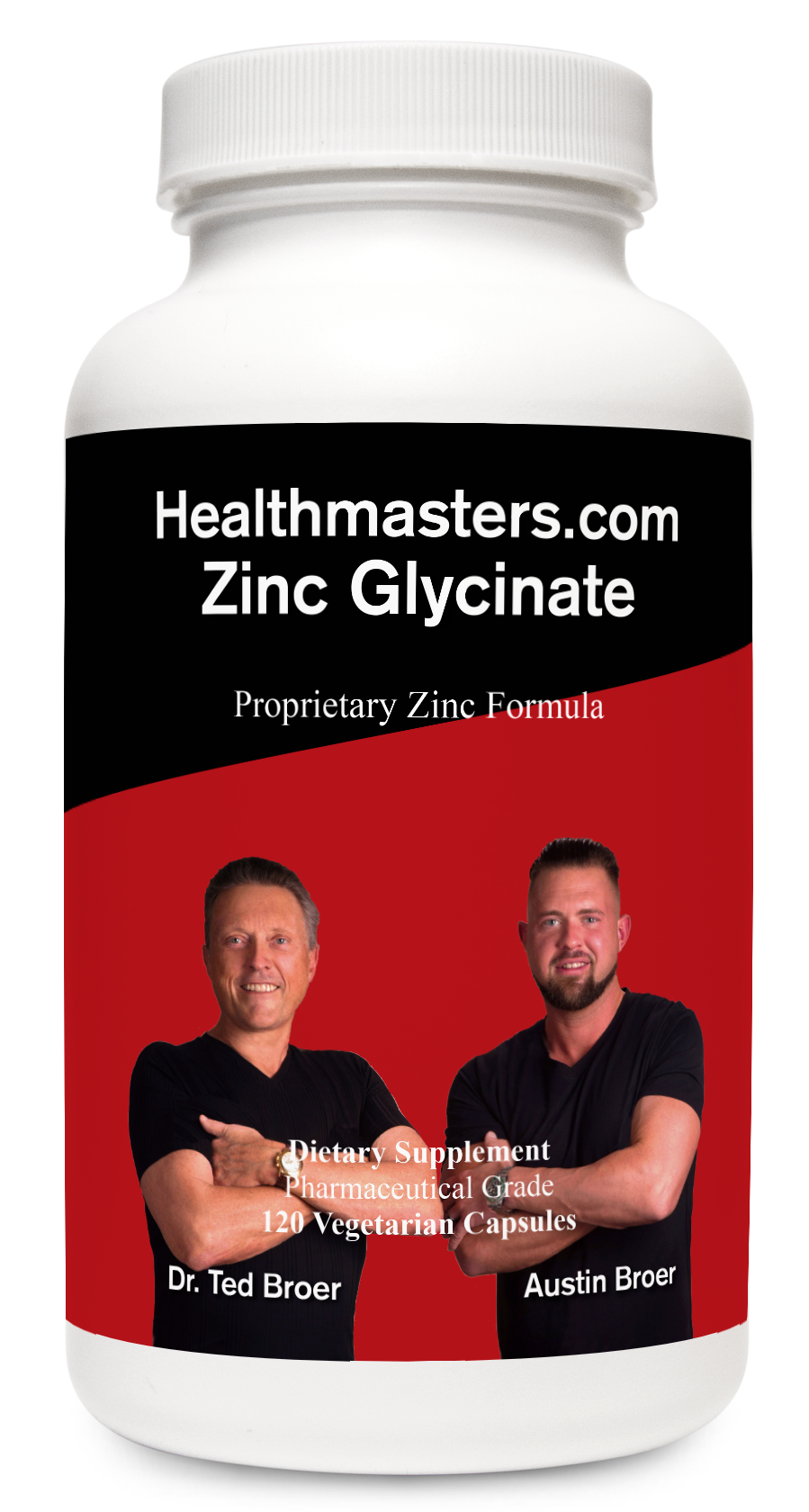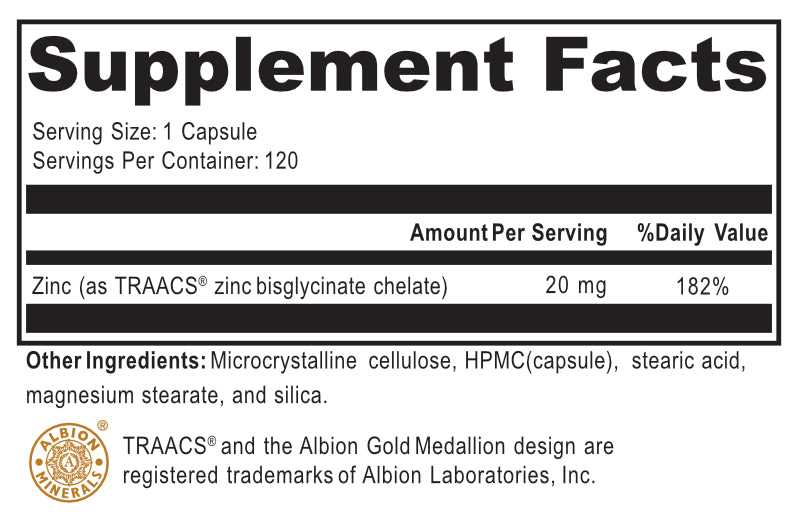Dosage
1 capsule daily


Zinc plays a critical role in over 300 enzyme processes, yet many people are deficient due to stress, poor diet, and depletion from medications. Our chelated Zinc Glycinate provides superior absorption and is gentle on the stomach — no nausea, no metallic taste.

Supports healthy immune cell function & resilience

Involved in wound healing, DNA synthesis & metabolism

May help with mood, focus, and brain function

Important for testosterone levels & reproductive health
Not all zinc is created equal. Here’s what sets ours apart:

Our zinc is bound to glycine — an amino acid — for better absorption and minimal stomach upset.

No fillers, additives, or junk. Just zinc glycinate in a vegetable capsule.

Made in the USA in a GMP-certified facility. Each batch is tested for purity and potency.
Want daily support for immunity and energy with a balanced dose of essential minerals.

1 capsule daily

Take with a meal to enhance absorption

Vitamin D3/K2 – Enhances immune synergy
Vitamin C – Further supports immune health
NAC – For antioxidant and detox benefits
Zinc and copper compete for absorption — if you’re taking zinc long-term, consider pairing with a copper supplement or multi with copper included.

Yes — zinc glycinate is chelated, which means it’s easier for the body to absorb and far less likely to cause nausea.
We recommend taking it with food to prevent potential digestive discomfort.
Yes! We use vegetable capsules and plant-based binders.
Over time, high-dose zinc may deplete copper. If you’re taking this consistently, you may want to include a multi that contains copper.
GMP Certified
Facility
Proudly Made
in the USA
Non-GMO
Certified Formula
Gluten-Free &
Soy-Free
Third-Party
Lab Tested
No Artificial
Additives
or Preservatives